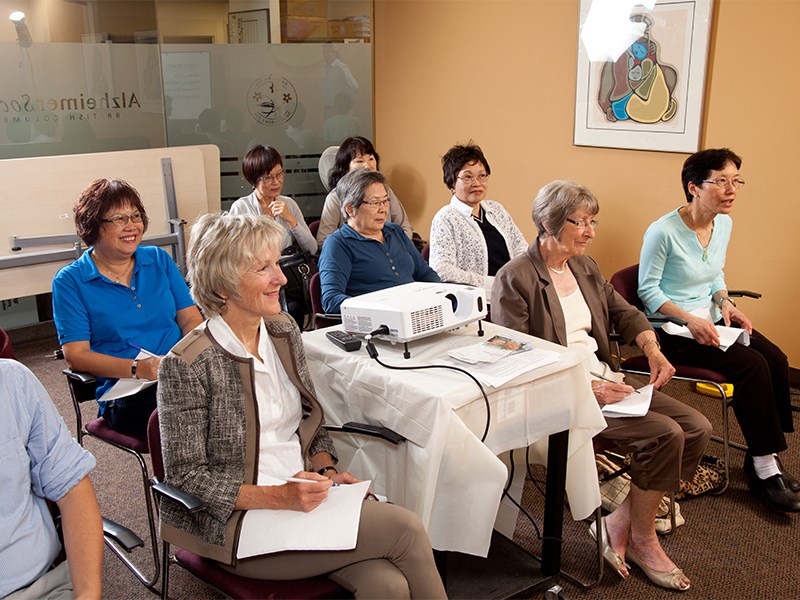For any family dealing with dementia, the illness can be overwhelming and the situation compounded by a system stretched to the limit, especially in small, isolated communities such as Powell River.
“Research has shown that family members and informal caregivers suffer from stress with regard to caregiving of someone with dementia more than any other illness,” said Bronwyn James, support and education coordinator for the Alzheimer Society of BC.
Reasons are numerous, according to James, including the person with dementia not being capable of directing their wishes for their care.
“Family has to make decisions that maybe the person with dementia is not fully able to understand, is not able to participate in making and will resist,” she said.
January is Alzheimer Awareness Month. Due to the demographics of an aging population, Powell River, where the median age is approximately 50.6, higher than national (40.6) and provincial (41.9) median ages, more than 450 people have some form of dementia, according to Alzheimer Society of BC. That total, from 2012/2013, includes only reported cases.
James said it is safe to say more people suffer with some form of dementia than those statistics indicate. That assessment is supported by local advocates.
“That’s what I’m hearing,” said Maureen Tierney who, along with Malerie Meeker, facilitates a support group for caregivers of someone with dementia or Alzheimer’s disease.
Actual numbers could also trend higher than official statistics because the person who has dementia often does not want to admit it, and their partner will protect them from that, said Tierney.
With more people requiring care at home and within residential care facilities, the strain on both options is growing. Long waiting lists exist for entry into Evergreen Care Unit and Willingdon Creek Village.
According to Tierney, due to funding and fewer spaces being available, a person with dementia has to have a certain number of home care hours before qualifying to be on the waiting list.
Two years ago, before Willingdon Creek opened, Tierney, who was a social worker in Victoria before retiring here, said she volunteered for Powell River Health-Care Auxiliary. At Powell River General Hospital, she said she saw people with dementia taking up acute care beds.
“At one point, they had the physiotherapy department in the hospital downstairs lined with beds and a curtain between each one,” said Tierney. “These were all people waiting to get into care.”
Some people prefer not to see a family member go into care. Tierney said a woman recently told her that she promised not to put her husband into care and feels she cannot break her promise to him.
Two of the biggest difficulties caregivers of people with dementia face is aggressive behaviour and wandering.
Wandering is a major fear for spouses looking after partners who get up in the night, dress and head out the door.
“I have someone in the group who said the dog barking lets him know his wife is up and heading out,” said Tierney. “It’s very scary.”
One advantage, a small relief among a myriad of difficulties when dealing with dementia, is that a small community such as Powell River is more openly caring.
“I hear that all the time from people,” said Tierney. “One fellow said the only respite he gets is the 88-year-old woman living next door has his wife over for coffee every day to give him a break.”
Tierney said another husband could not find a caregiver to come in so he could attend the support group. Instead, a neighbour came over and looked after his wife for a couple of hours.
According to James, Powell River as a community is very supportive.
“That’s what I always hear,” said James. “Neighbours, shopkeepers, business people, everyone is very supportive, which is really helpful and really good for families.”
For more information on Alzheimer’s Awareness Month and Alzheimer Society of BC, go to alzheimer.ca/bc.



